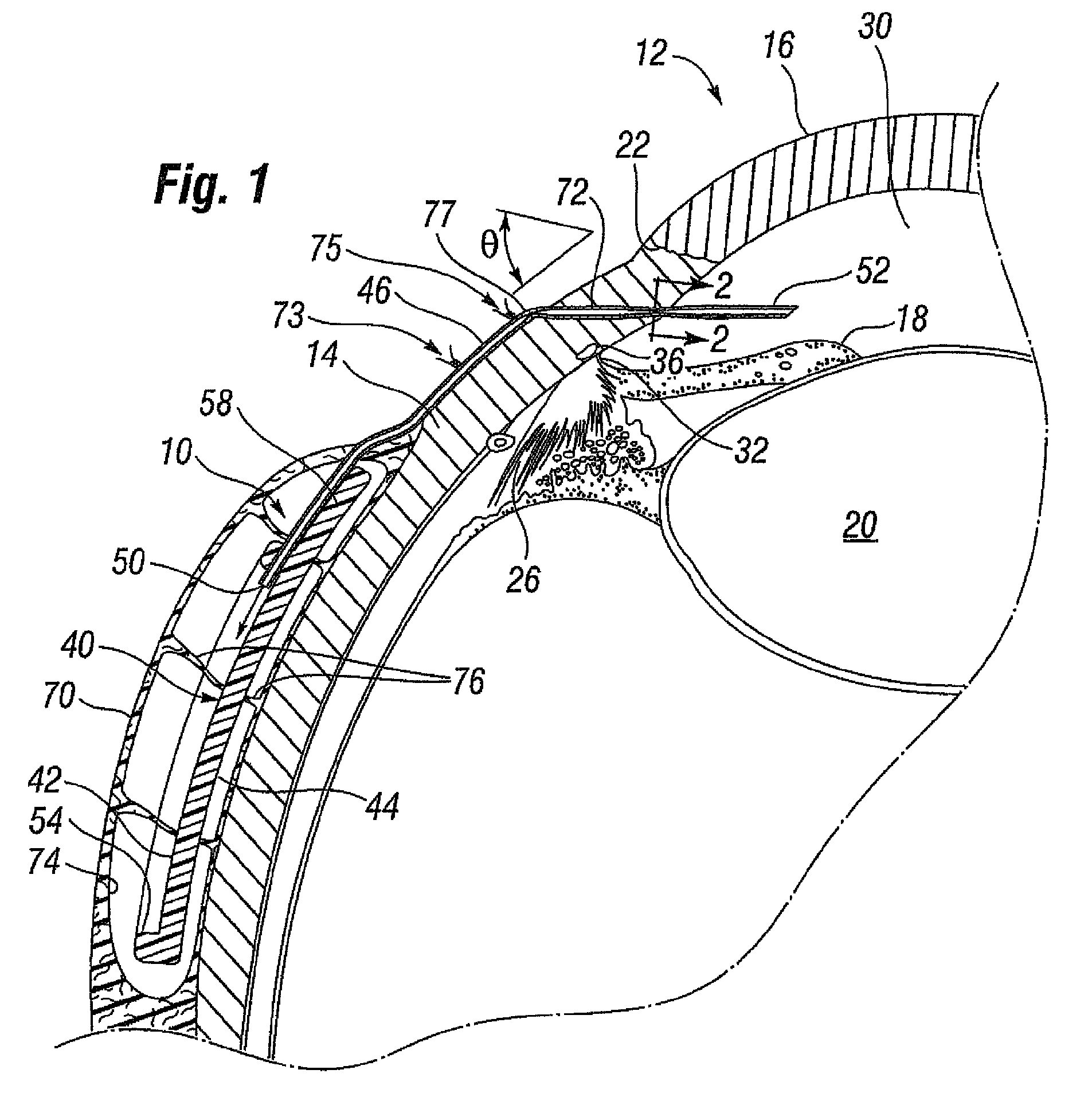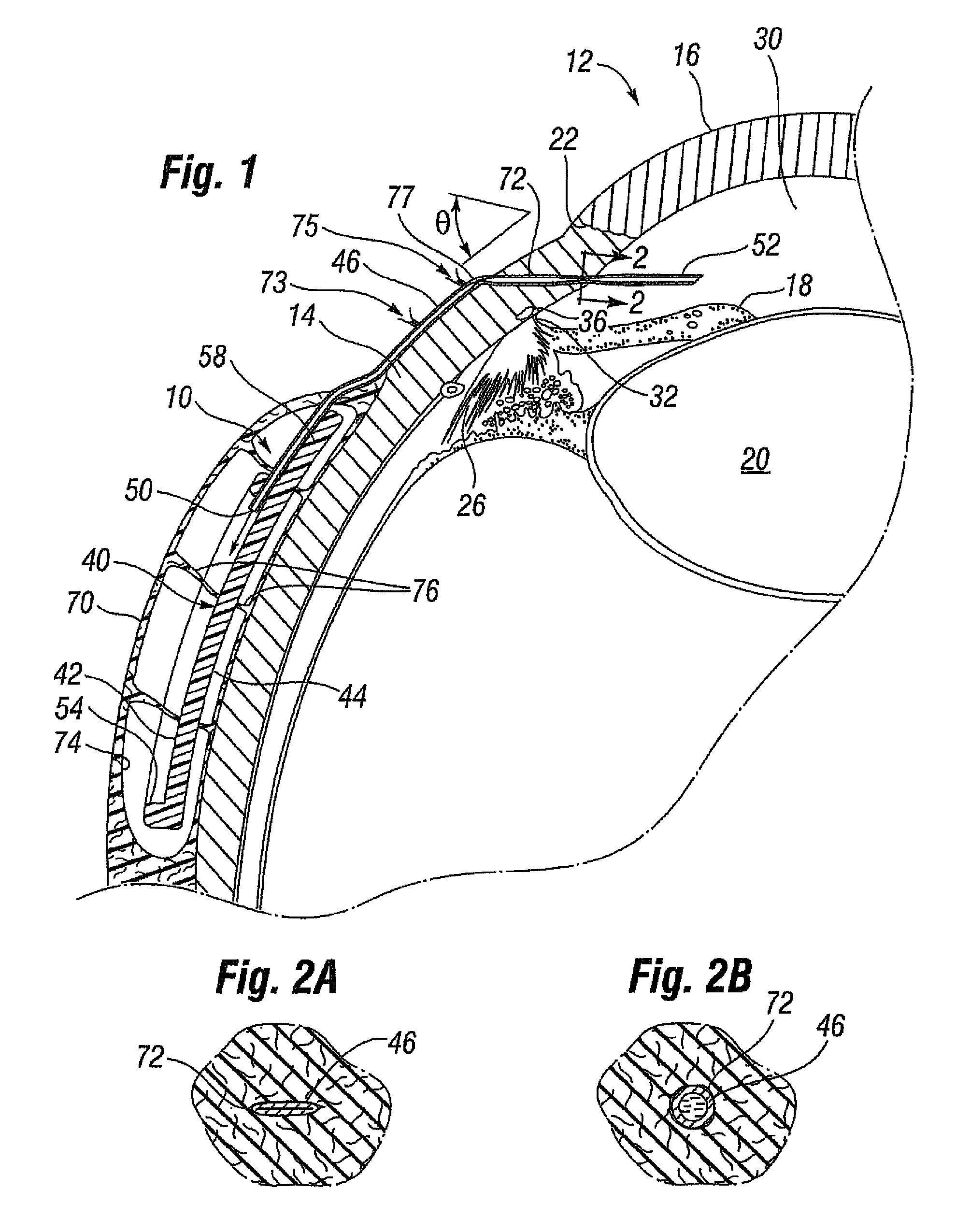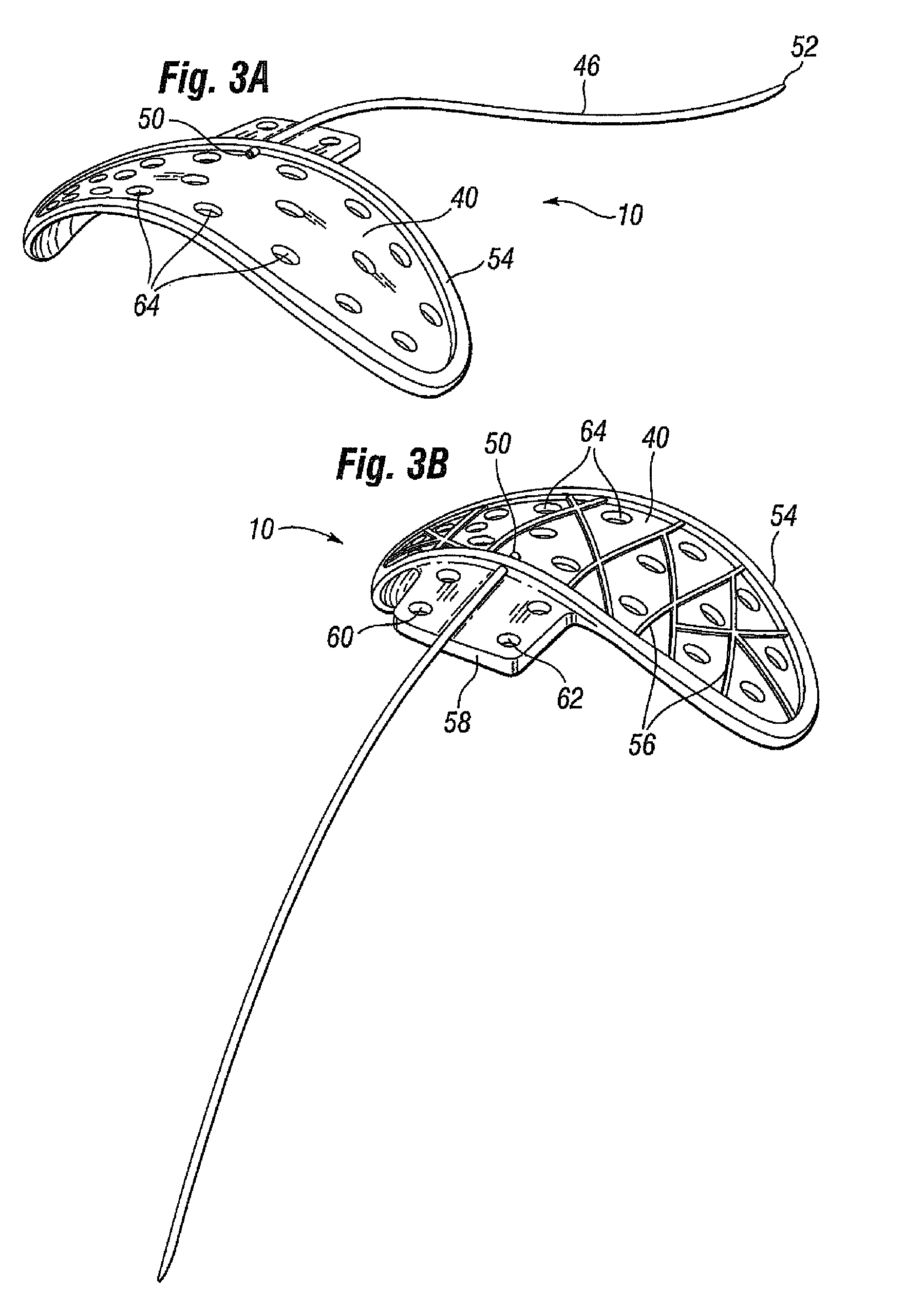Glaucoma drainage shunts and methods of use
a shunt and glaucoma technology, applied in the field of eye glaucoma treatment, can solve problems such as flow restrictors, and achieve the effects of reducing heightened intraocular pressure, reducing hoop strength, and reducing hoop strength
- Summary
- Abstract
- Description
- Claims
- Application Information
AI Technical Summary
Benefits of technology
Problems solved by technology
Method used
Image
Examples
Embodiment Construction
[0025]FIG. 1 illustrates a glaucoma shunt 10 constructed in accordance with the present invention positioned within the tissue of an eye 12. The relevant structure of the eye 12 will be described briefly below to provide background for the anatomical terms incorporated herein, however, it should be realized that several anatomical details have been omitted for clarity of understanding. The tough outer membrane known as the selera 14 covers all of the eye 12 except that portion covered by the cornea 16, the thin, transparent membrane which enables light to enter the pupil 18 and the iris aperture in front of the lens 20. The cornea 16 merges into the sclera 14 at a juncture referred to as the sulcus of the sclera or as the limbus 22. The ciliary body 26 begins at the limbus 22 and extends along the interior of the sclera 14.
[0026]It is well-known that aqueous is produced by the ciliary body 26 and reaches the anterior chamber 30 formed between the iris 18 and the cornea 16 through th...
PUM
 Login to View More
Login to View More Abstract
Description
Claims
Application Information
 Login to View More
Login to View More - R&D
- Intellectual Property
- Life Sciences
- Materials
- Tech Scout
- Unparalleled Data Quality
- Higher Quality Content
- 60% Fewer Hallucinations
Browse by: Latest US Patents, China's latest patents, Technical Efficacy Thesaurus, Application Domain, Technology Topic, Popular Technical Reports.
© 2025 PatSnap. All rights reserved.Legal|Privacy policy|Modern Slavery Act Transparency Statement|Sitemap|About US| Contact US: help@patsnap.com



